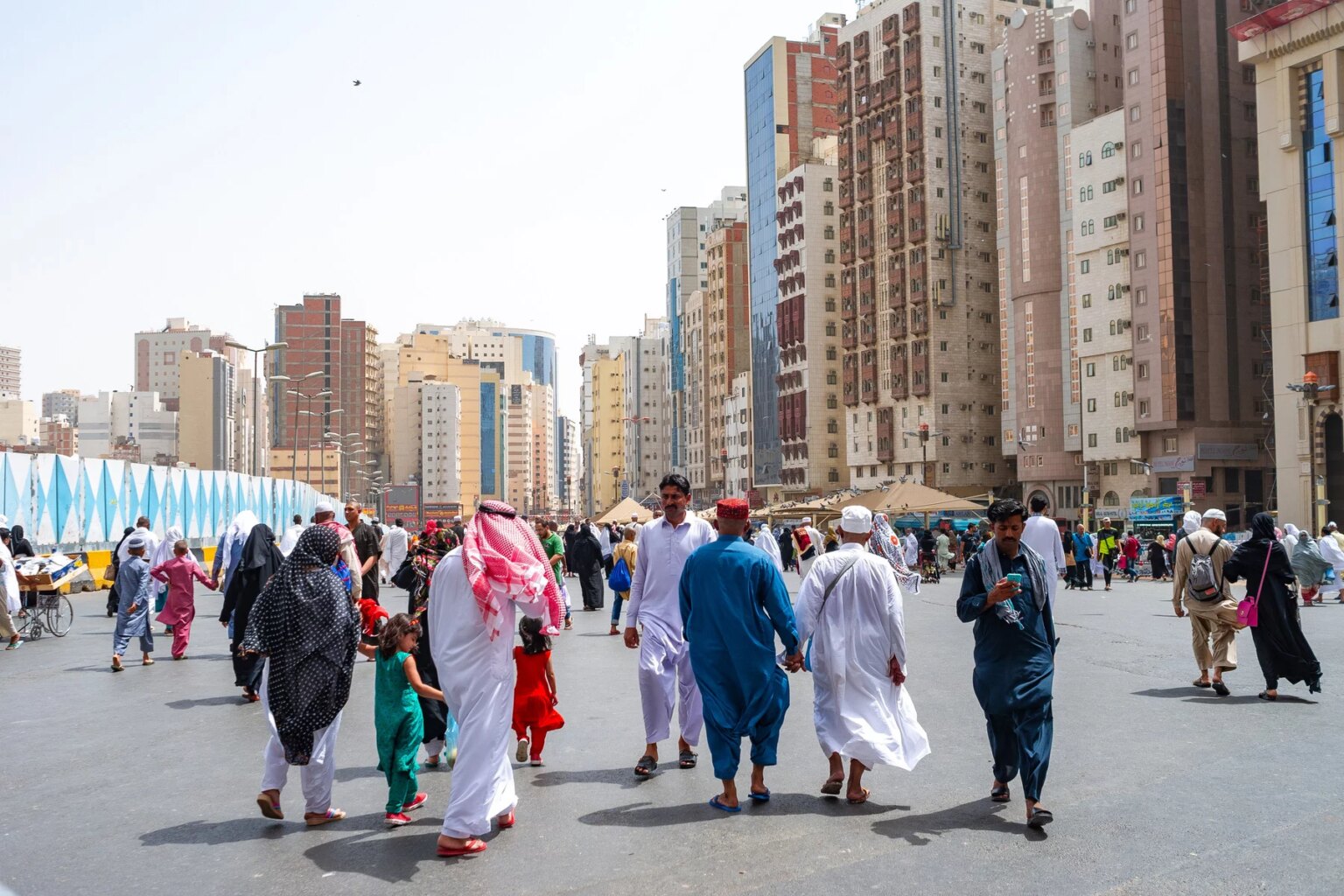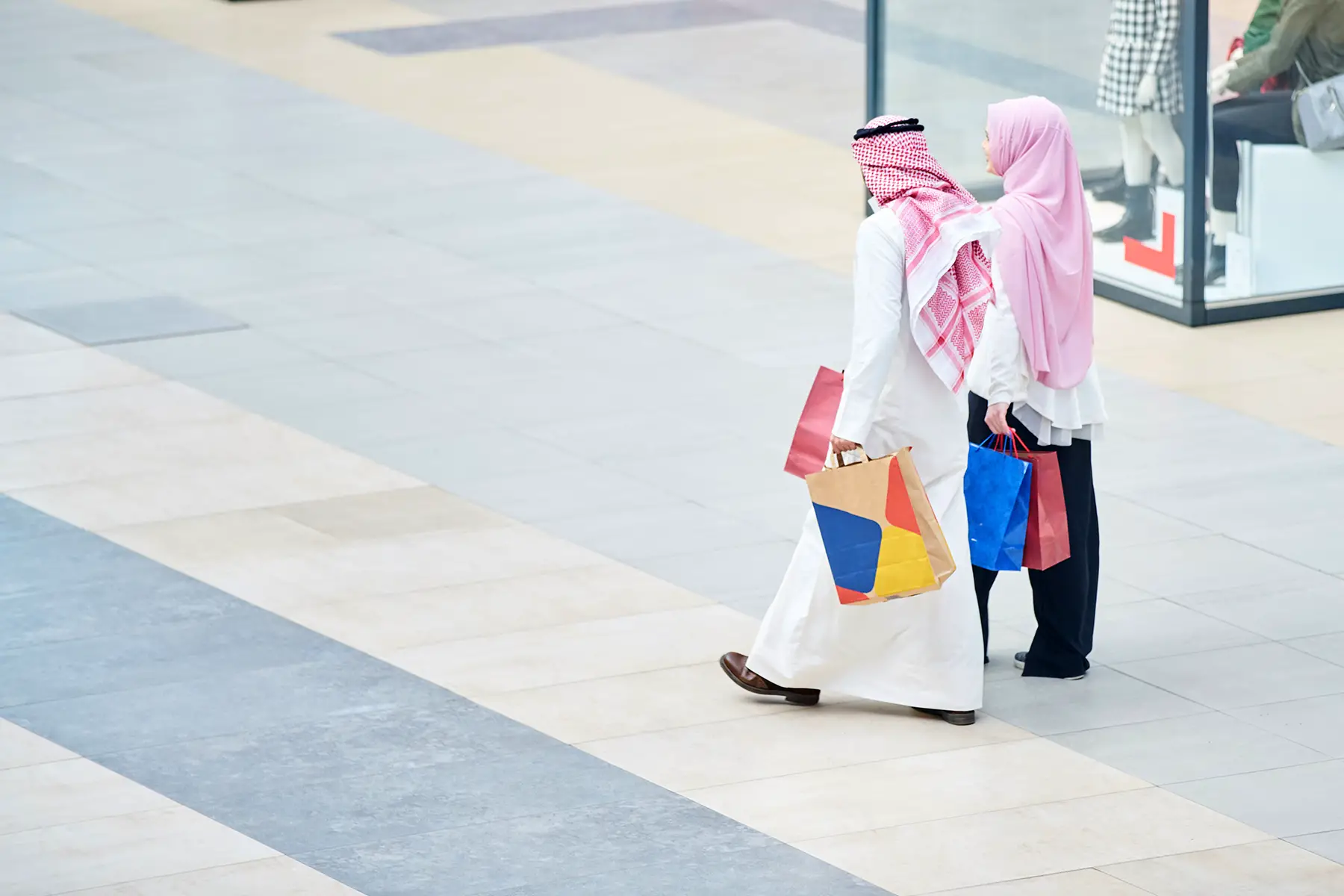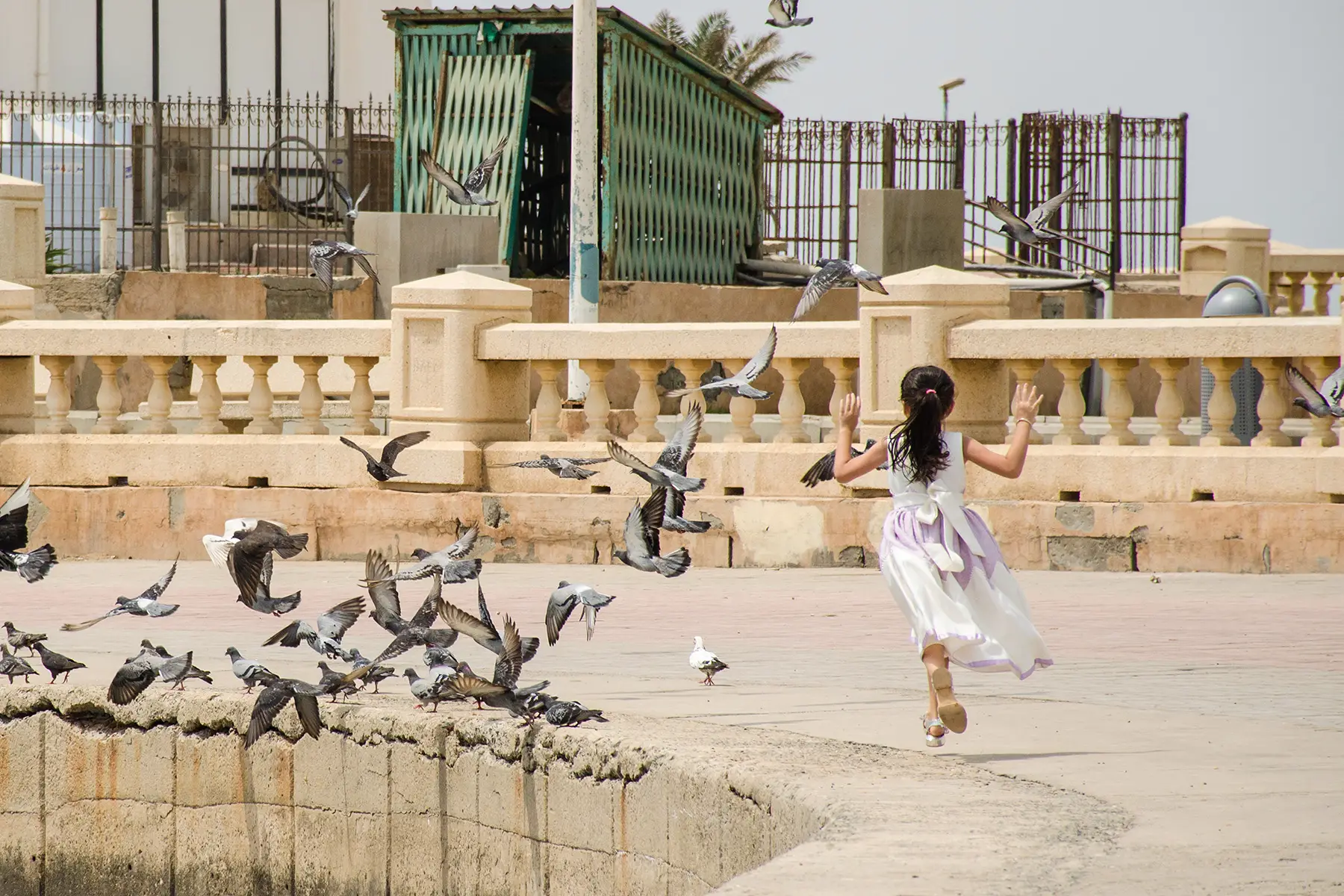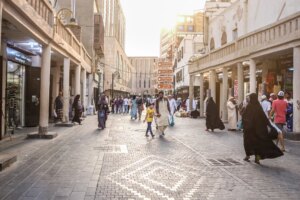In many ways, Saudi Arabia is a paradoxical country and culture. The people are hospitable but insular; friendly in some ways and rigid in others. As an expat, trying to understand a country with so many intricacies can be daunting. However, this helpful guide provides an introduction to the culture and people in Saudi Arabia. It includes the following sections:
The Saudi people in numbers and facts
Languages and countries of origin
Saudi Arabia has a population of 36 million people and the national language is Arabic; although you will find a few regional variations of Saudi Arabic throughout the Kingdom. Compared to its neighbors, Saudi Arabia has a relatively large local population, but 32.3% of the people living there hail from somewhere else. In 2018, the largest expat population was Syrian, followed by Indian, Pakistani, and Egyptian.
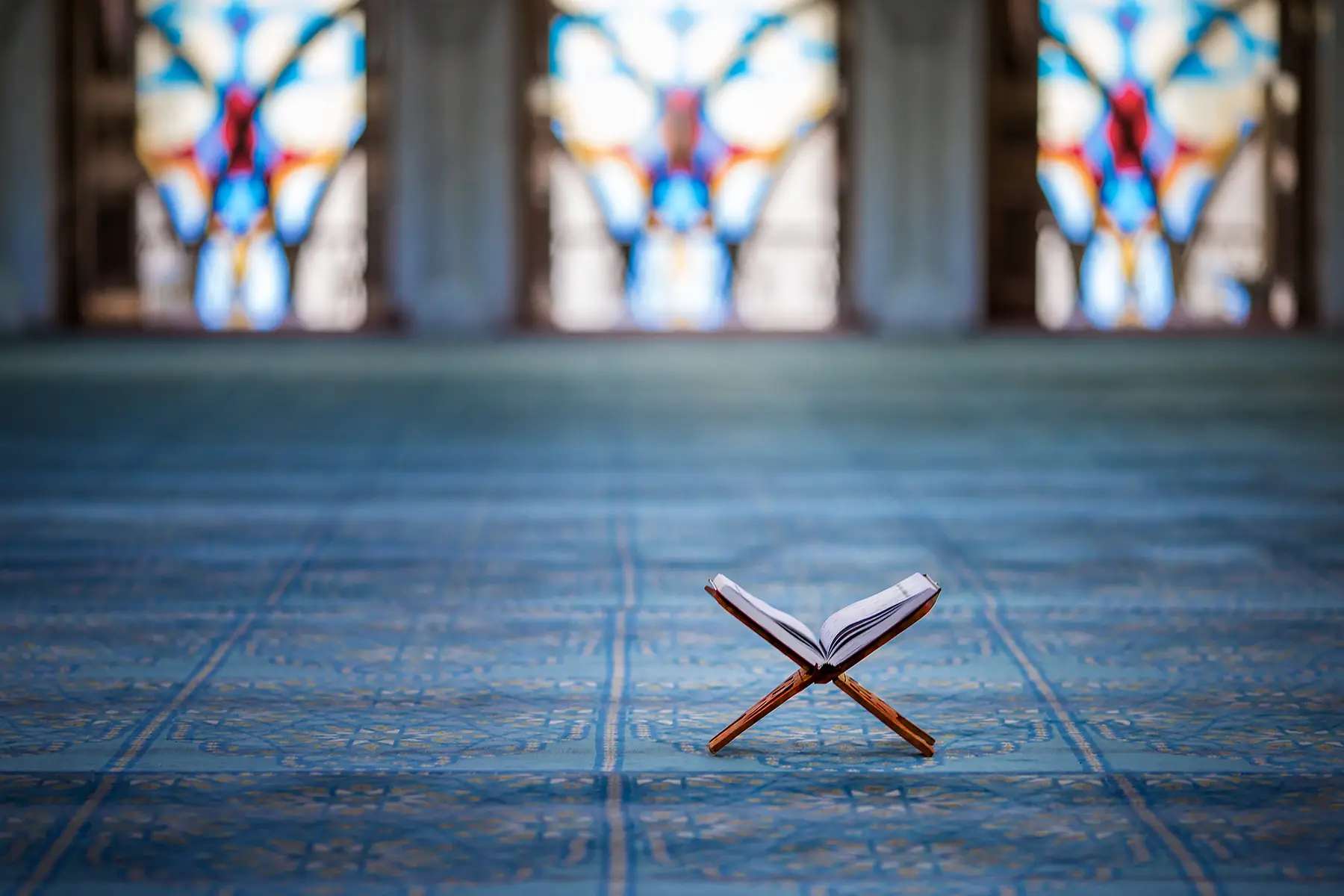
Westerners made up around one percent of the overall population. Therefore, when walking (or rather driving) through the streets you will find fellow humans from India, Ireland, Bangladesh, Yemen, and the Philippines, to name a few. Because the Saudi government maintains that Arabic is the official and national language – spoken by around 80% of people living in the Kingdom – it does not publish statistics on other languages spoken within its borders.
Religions
Among Saudi citizens, more than 85% practice Sunni Islam, while between 10% and 12% practice Shia Islam. Unfortunately, some Sunnis consider Shia Islam illegitimate and there are many instances of discrimination and outright hostility against Shiites in the Kingdom.
It is illegal as a Saudi citizen to renounce Islam or convert to any other religion. Among expats you will find a range of communities of faith, including Buddhist, Hindu, Jewish, Sikh, and Christian. That said, the majority of expats are Muslim. As an expat, you are legally allowed to be whatever religion (or lack thereof) you like, however you are not legally allowed to publicly practice or evangelize anything except Islam. A study conducted in 2010 found that 93% of people living in the Kingdom were Muslim; less than 5% were Christians. The rest of the population included Buddhists, Hindus, practicers of folk religion, and people who practiced other or no faiths.
Demographic statistics
Saudi Arabia modernized at breakneck speed within the last fifty years, leading to a life expectancy of 75 and an infant mortality rate (12 deaths per 1,000 live births) that is on par with many developed countries. Literacy rates throughout the Kingdom stand at around 94% and unemployment rates are reasonable if gendered, at 7.4% in general and 20.4% for women. The resident population, including expats, comprises more males (57%) than females and skews young. In fact, 49% of the population is between the ages of 25 and 54, while 26% is between 0 and 14 years old.
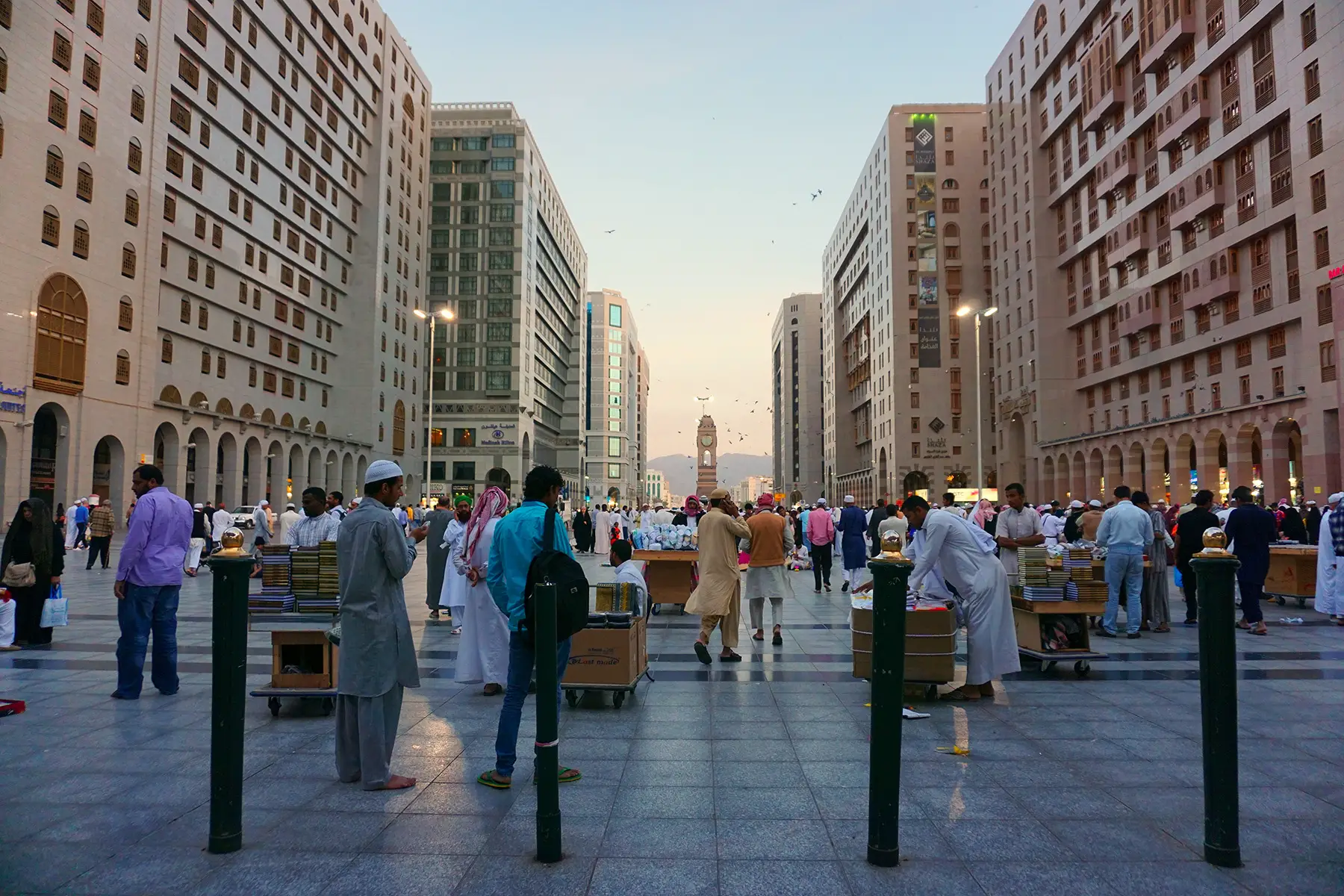
Common personality traits and stereotypes of people
In a country of 34 million people, it is impossible to accurately categorize Saudi behavior. That said, there are a few cultural practices you might come across in your time in the Kingdom. Gender segregation is strict and rigidly practiced; if two opposite-gender people are not blood relatives, they should never be in the same room or speaking to each other alone. People in the Kingdom value their family history and can often name their forefathers from several generations back.
Communicating
The communication style in the Kingdom is indirect and friendly. Greetings involve a lot of time asking about one’s health, family, and so on. And try as you might, it is very difficult to speed up this process to get straight to whatever business you were hoping to discuss.
Saudis are agreeable and will often say ‘yes’ to requests that they do not follow through on. In fact, if you ask a Saudi for something and they respond ‘God-willing’ (Inshallah), do yourself a favor and assume it will never happen. If they follow through, it will be a lovely surprise and, if they don’t, you’ll have a backup plan!
Culture and values of people in Saudi Arabia
Culture and social etiquette in Saudi Arabia
Respect, hospitality, and honor are extremely important in Saudi Arabia. So, if you are invited into someone’s home you will be treated like royalty – and will likely eat your weight in meat and rice. Gifts are common – so bring something as a token. Furthermore, it is important to know that personal space (within genders) is not practiced or considered important.
In addition, some taboos to keep in mind are: never insult a Saudi man (or woman) and don’t show anyone the soles of your feet. If you are eating with your hands, don’t use your left hand. Also remember, it is not polite to stare or point; just like in the West. Furthermore, you cannot show affection to the opposite sex in public, even if it is your spouse. If you see two men speaking loudly in Arabic and using bold or seemingly aggressive body language, don’t worry, Arabs are effusive; they are probably just discussing the latest sports game or who should pay the bill.
National dress, style, and fashion in Saudi Arabia
Dress codes in the Kingdom are fairly uniform and adhered to. In public, Saudi men wear a (usually white) thobe; an ankle-length shirt that covers their arms. This is paired with a (usually checkered) headdress that includes a large square cloth over a small white cap held in place by a black cord. Saudi women usually wear a black abaya (a kind of flowy overcoat) over their clothes with either a hijab (headscarf), a niqab (a fabric covering everything except the eyes), or a burka (covers the face).
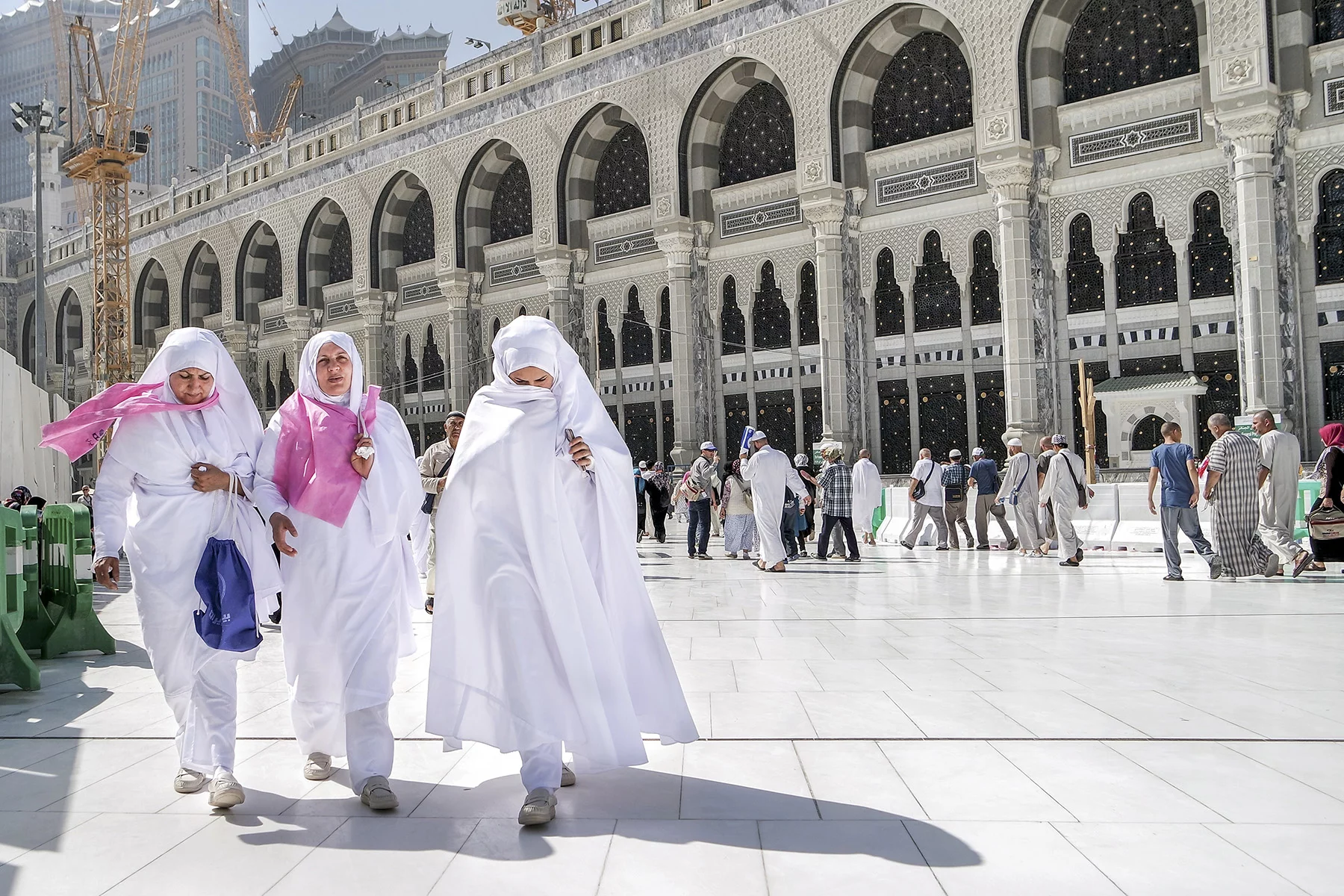
Rules for expats are quite a bit laxer but, like everything in the Kingdom, modesty and respect for local culture are extremely important. It is better to err on the side of too modest than the opposite.
Saudi values
Islam plays a huge part in Saudi life. With mosques on virtually every corner, you will find that the call-to-prayer is audible everywhere and that most people stop what they are doing to pray five times a day. This also means that the country slows down during Muslim holidays, such as Eid. The several days that bracket the holiday are also a quiet period. Poetry and classical Arabic poetry are highly revered, however reading for pleasure, although a growing trend, is much less practiced.
What people in Saudi Arabia like to do
Many Saudis will spend much of their free time with family or friends in the evenings when the weather is cooler. They might walk along the Corniche, visit cafes or restaurants, or go on a long drive. Saudis looking for excitement for themselves or their children may go dune bashing in their four-wheel drives, visit amusement parks, or go cycling. However, because of the heat and the fact that many families have a disposable income, many people and families frequent malls to walk around, eat (fast food is extremely popular), shop, and watch movies. Ironically, though, malls are usually very chilly – so bring a sweater!
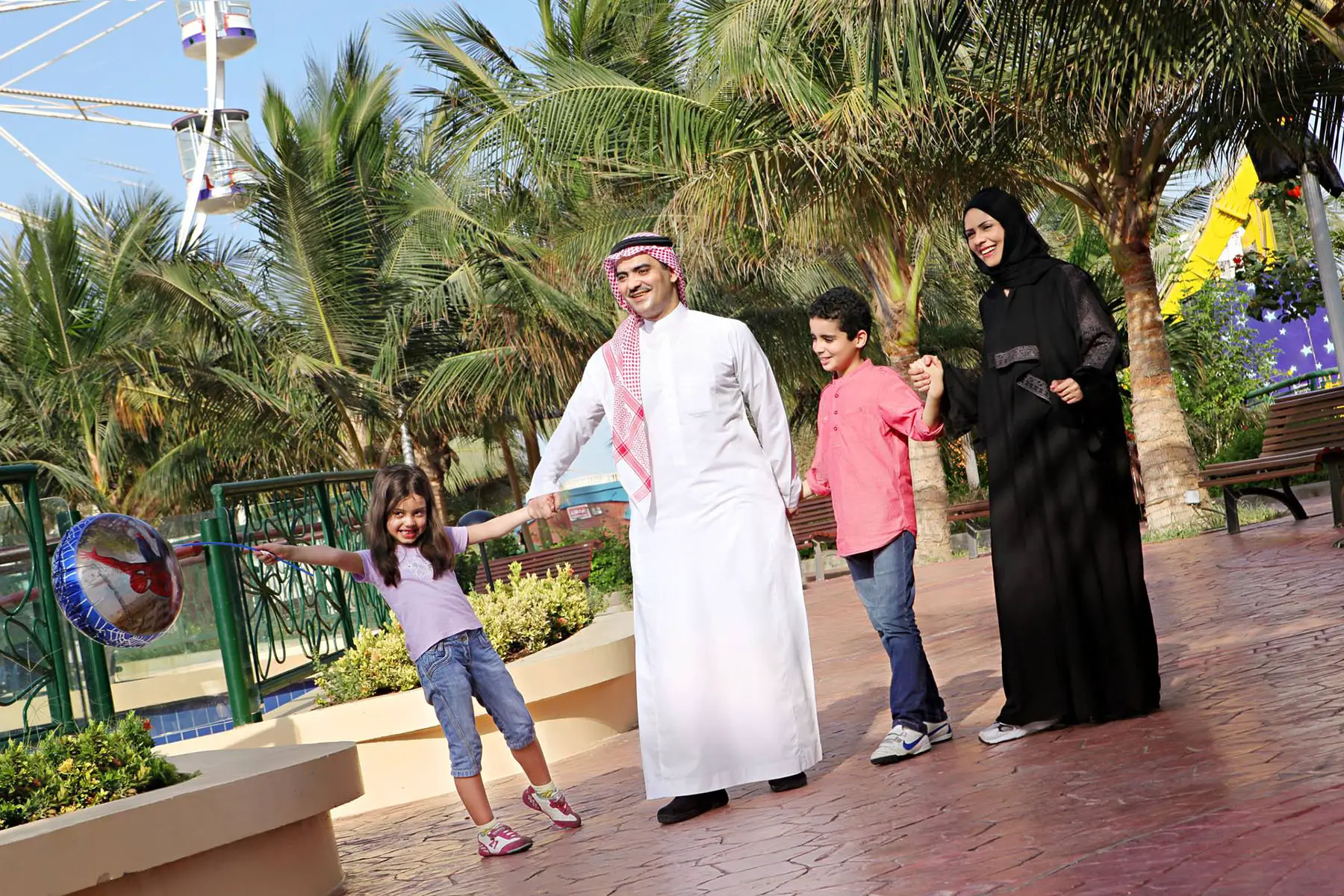
Where people in Saudi Arabia work
Even though Saudis are outnumbered by expats, Saudi employees form the bulk of workers in the public sector, at over 95%. Public sector jobs are highly coveted because they offer lucrative benefits. Furthermore, they have a high-status which is extremely important; especially to young Saudis. In an attempt to diversify the economy, the government is pursuing a policy of Saudization to place Saudis in positions that have so far been occupied by foreign workers. This policy works very well in the public sector. However, it is more challenging in the private one and not just because of a desire among many Saudis for jobs that have a perceived high status. In addition, employers in the private sector note having to retrain Saudis, and facing cultural and gender issues.
Where people in Saudi Arabia live
In a massive flip from just 60 years ago, the majority of Saudis – over 84% – live in urban areas. In fact, Saudi Arabia has four cities with a population of more than one million people: Riyadh, Jeddah, and the two holy cities of Mecca and Medina. Saudis prefer to live with or within family units, so it is not very common for young people to move out on their own. Even once married, many Saudis remain living with their parents – and grandparents – in the same home. Housing styles tend to be detached and big enough to house multiple generations, however, in bigger cities, you will see apartment complexes. The government wants more Saudis to own homes but, for now, only 50% of Saudis do.
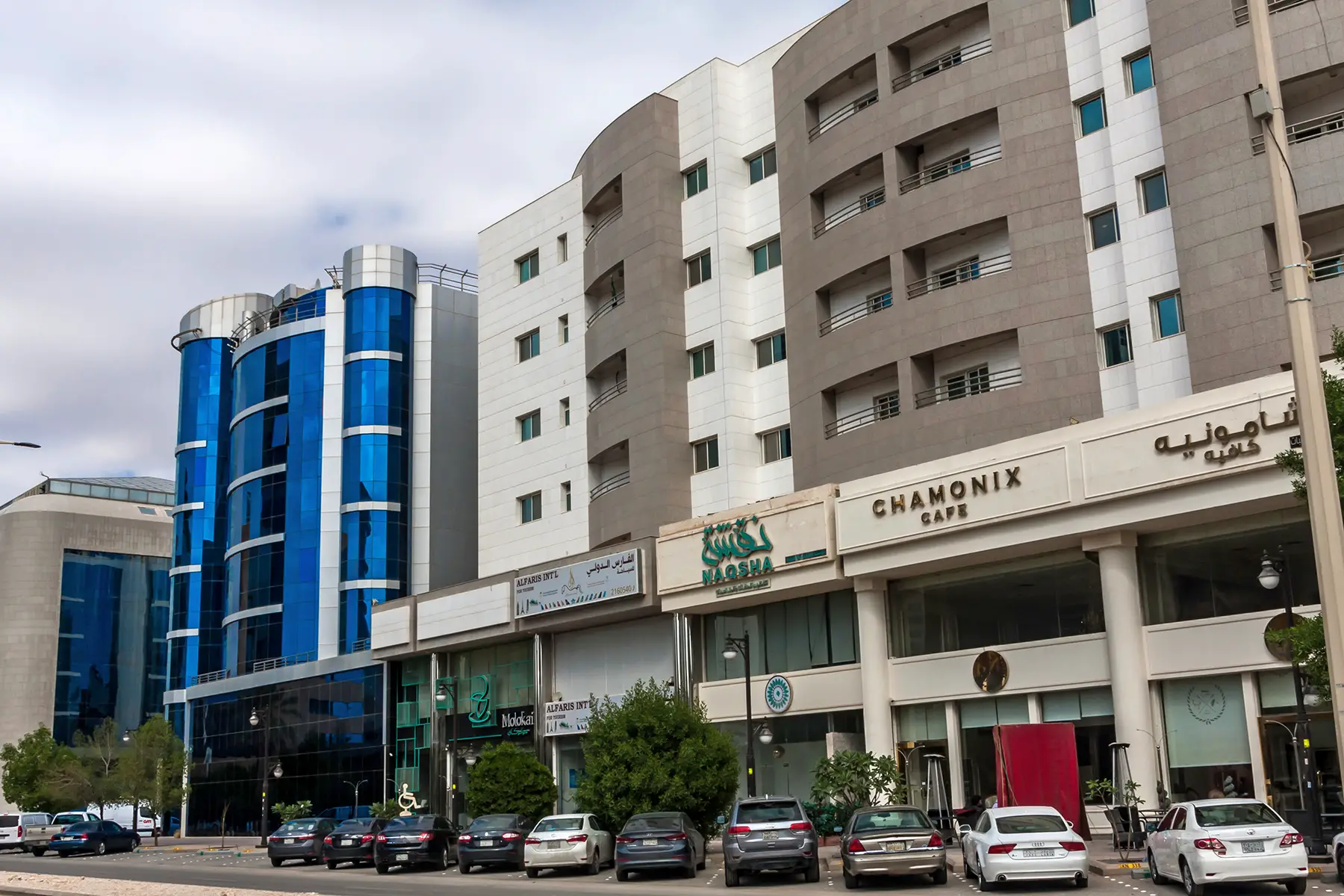
Famous people in Saudi Arabia
With one of the largest royal families in the world, Saudi Arabia has many people who are internally famous. Here are a few of the bigger names in the Kingdom:
- Mohammed bin Salman – The Crown Prince of Saudi Arabia and, many argue, the person responsible for many of the newer, progressive policies in the Kingdom, such as lifting the driving ban.
- Jamal Khashoggi – now deceased, Khashoggi was a dissident, an author, and a writer for the Washington Post. He was killed in 2018.
- Mohmmed al Turki – A film producer and entrepreneur, Turki executive produced What Maisie Knew and Desert Dancer.
- Haifa Al-Mansour – The filmmaker behind the critically acclaimed movie Wajda.
- Loujain Al-Hatloul – The well-known activist and influencer who defied the driving ban in 2014 by driving from the United Arab Emirates to Saudi Arabia and getting arrested.
